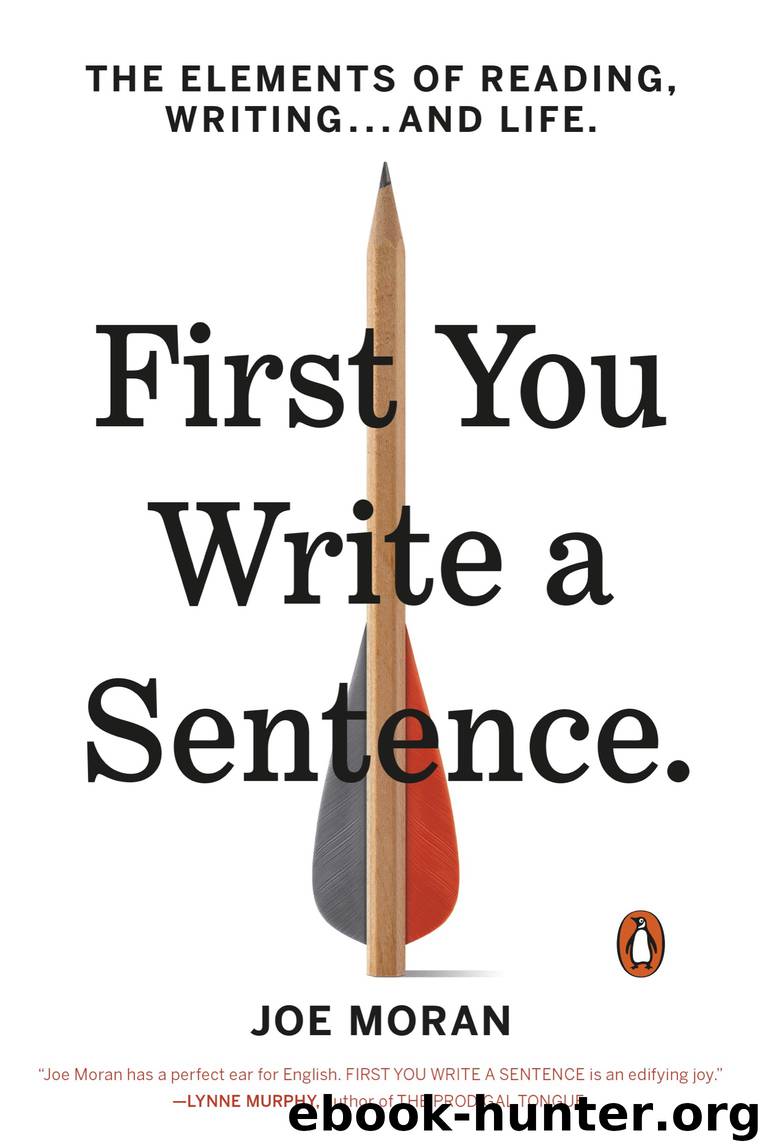First You Write a Sentence by Joe Moran

Author:Joe Moran
Language: eng
Format: epub
Publisher: Penguin Publishing Group
Published: 2019-08-12T16:00:00+00:00
* * *
•
Then came another threat to the full stop: the talky, casual prose of texting and online chat. The dialogic visual language of texting speech bubbles, pinging left and right on your phone, has little use for full stops. A single-line text needs no punctuation to show that it has ended. Instead of a full stop we press send. Longer texts replace the full stop with a simple line break, which has assumed the role of an all-purpose, pause-inserting mark, like the medieval punctus. The ends of these texts are marked by three-dot ellipses, kisses or emojis.
Omitting the full stop gives off an extempore air, making replies seem insouciant and jokes unrehearsed. Studies have shown that young people tend to read a full stop in a text as clipped, curt or passive-aggressive. On social media, they use full stops between every word to sound angrily emphatic. End. Of. Story. But a full stop is not meant to be the final word in an argument. It is a satisfying little click that moves the dial along so the next sentence can pick up where it left off. Its end is also a beginning.
More people than ever are writing sentences. In the 1960s Marshall McLuhan speculated that technology would one day allow us to communicate our perceptions direct, without the flawed medium of writing. A Catholic convert, he thought that new media might create a “unified sensorium” and “a general cosmic consciousness.” He believed that the computer could bring about a global Pentecost, a revelation of the Holy Spirit without the evasions of language. In the future we would commune our thoughts intuitively like St. Augustine’s angels, unmediated by words.
A more modest variant on this article of faith is the belief that voice recognition will do away with keyboards. Writing is an arduous and energy-consuming act: why bother with it when you could use something as easy and natural as a voice? In a 2002 Harper’s essay, Marshall Fisher claimed that typing would soon survive as just a sense memory. “A writer,” he wrote, “while composing with his voice, will still tap his fingers on the desk like an amputee scratching a wooden leg.”
The opposite occurred. Far from writing being replaced by mind-melding or dictation to electronic secretaries, it has flourished. If you time-traveled even just thirty years back, you would be struck by how little writing was happening, outside of the classroom or lecture hall. No customers sat in coffee chains stabbing their laptops urgently with two fingers. No students texting slyly in class under their desks. No one updating the social network with the headline news of their lives. You might see the odd soul scrawling a signature on a checkbook or a new appointment in their Filofax. But mostly writing would have been farmed out to the professionals.
Little did they know that they were living at the end of days. They were the last generation in a long era—let’s call it the printocene—when writing was meant to be read much later than it was written.
Download
This site does not store any files on its server. We only index and link to content provided by other sites. Please contact the content providers to delete copyright contents if any and email us, we'll remove relevant links or contents immediately.
Cecilia; Or, Memoirs of an Heiress — Volume 1 by Fanny Burney(32554)
Cecilia; Or, Memoirs of an Heiress — Volume 2 by Fanny Burney(31951)
Cecilia; Or, Memoirs of an Heiress — Volume 3 by Fanny Burney(31935)
The Lost Art of Listening by Michael P. Nichols(7500)
Asking the Right Questions: A Guide to Critical Thinking by M. Neil Browne & Stuart M. Keeley(5766)
We Need to Talk by Celeste Headlee(5610)
On Writing A Memoir of the Craft by Stephen King(4938)
Dialogue by Robert McKee(4392)
Pre-Suasion: A Revolutionary Way to Influence and Persuade by Robert Cialdini(4226)
I Have Something to Say: Mastering the Art of Public Speaking in an Age of Disconnection by John Bowe(3886)
Elements of Style 2017 by Richard De A'Morelli(3344)
The Book of Human Emotions by Tiffany Watt Smith(3307)
Fluent Forever: How to Learn Any Language Fast and Never Forget It by Gabriel Wyner(3081)
Name Book, The: Over 10,000 Names--Their Meanings, Origins, and Spiritual Significance by Astoria Dorothy(2987)
Why I Write by George Orwell(2948)
Good Humor, Bad Taste: A Sociology of the Joke by Kuipers Giselinde(2946)
The Art Of Deception by Kevin Mitnick(2802)
The Grammaring Guide to English Grammar with Exercises by Péter Simon(2742)
Ancient Worlds by Michael Scott(2683)
